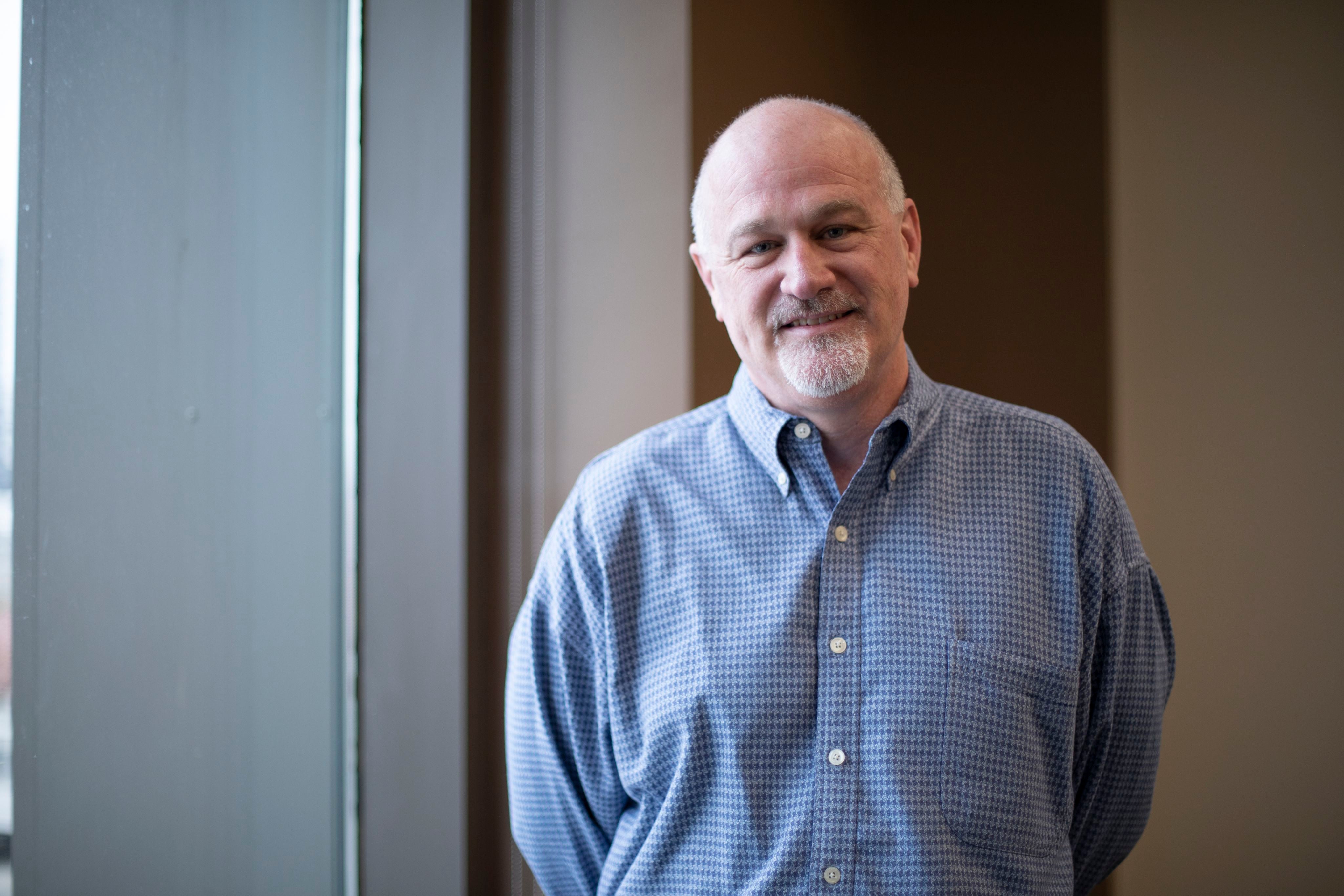An oratory tradition
An oratory tradition
UT speech team dominates national championships
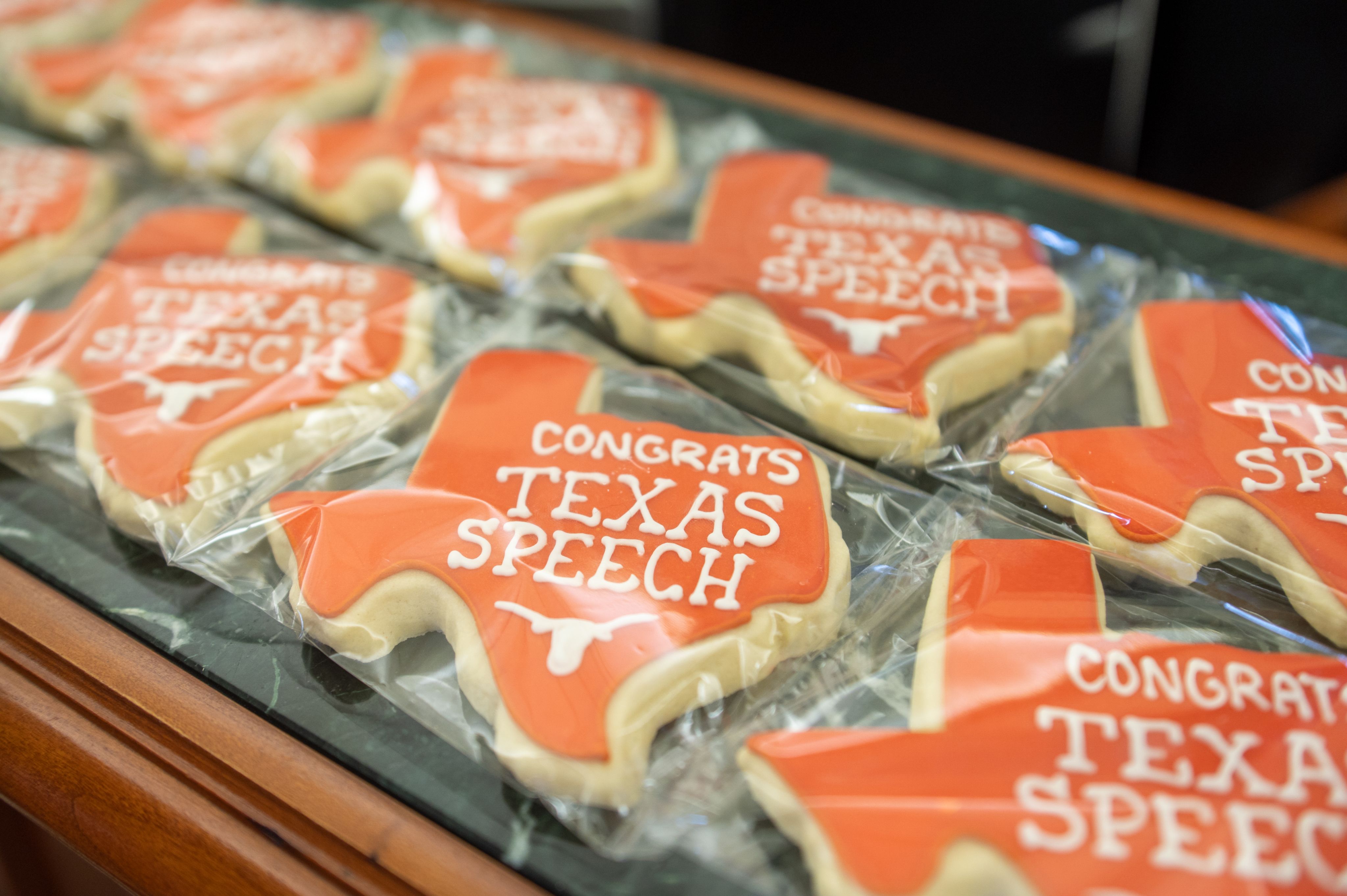
In middle school, Patrick Pham didn’t go out very much and had only a small friend group that he spent time with. He needed something to break out of his shell, so when a friend asked him to join the speech team at his school, he decided to give it a go.
At his first tournament, Pham had high hopes of taking home a trophy, but those hopes were quickly crushed when he didn’t place in any of the events he competed in. His disappointment in that moment became the catalyst that motivated him to come back each year and continuously improve.
“Every time I moved to the next level of speech, from middle school to high school to college, I flopped. I thought I was on top of the world, and obviously I was not,” Pham said. “It was a really humbling experience learning that every single level of speech has something to teach me, and that’s what keeps me going.”
After 10 years of competing, Pham traveled to Santa Ana, California, last year with The University of Texas at Austin’s speech team and won a national championship.
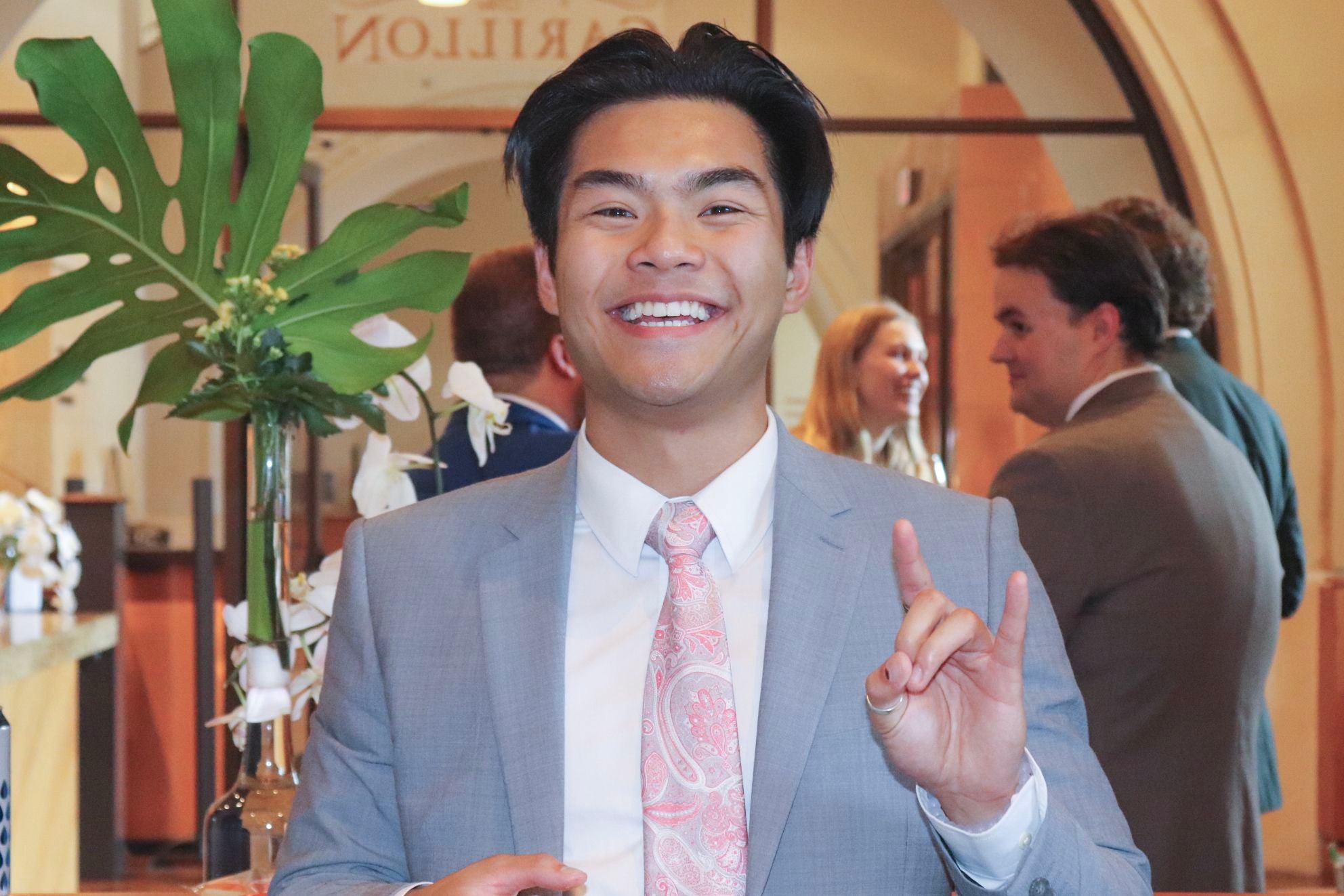
Patrick Pham at the Tower Lighting Celebration in May 2023.
Patrick Pham at the Tower Lighting Celebration in May 2023.
Winning is nothing new for the students in Texas Speech. Over the last few decades, the team has amassed several national championship wins and too many top ranking individual awards to count.
Most recently, this month, they won the national championship at the 2024 American Forensic Association National Speech Tournament, the third consecutive year they’ve won this title. The team amassed a final point total of 538 points to outpace an exceptional field that included George Mason University, who was second with 356 points.
“This was an extraordinary accomplishment for the program, especially for our graduating seniors who have now won the national team title three years in a row against the best teams in the country,” said Randy Cox, UT Austin Communication Studies professor of instruction and director of Texas Speech. “We could not be prouder of them and the way they represent The University of Texas.”
Housed in the Moody College of Communication’s Department of Communication Studies, Texas Speech welcomes majors from across UT to compete nationwide.
The three main categories at a speech tournament are interpretation, public address and limited preparation. Within each category there are a multitude of events, each using variations of the form to advocate for different social issues.
Pham’s national championship win last year was for his prose interpretation speech. This event consists of a speaker interpreting a text to make an argument about a topic. Pham performed “The Paper Menagerie,” a short story about a Chinese American boy who rejects his Chinese heritage but learns to appreciate it years later following the death of his mother.
“My argument was that Asian Americans, and many immigrant communities, have the difficult task of trying to embody and love where they're originally from, while also trying to assimilate in a world that doesn't really want them,” Pham said. “It’s through these types of stories that I am able to be an activist and advocate for these communities.”
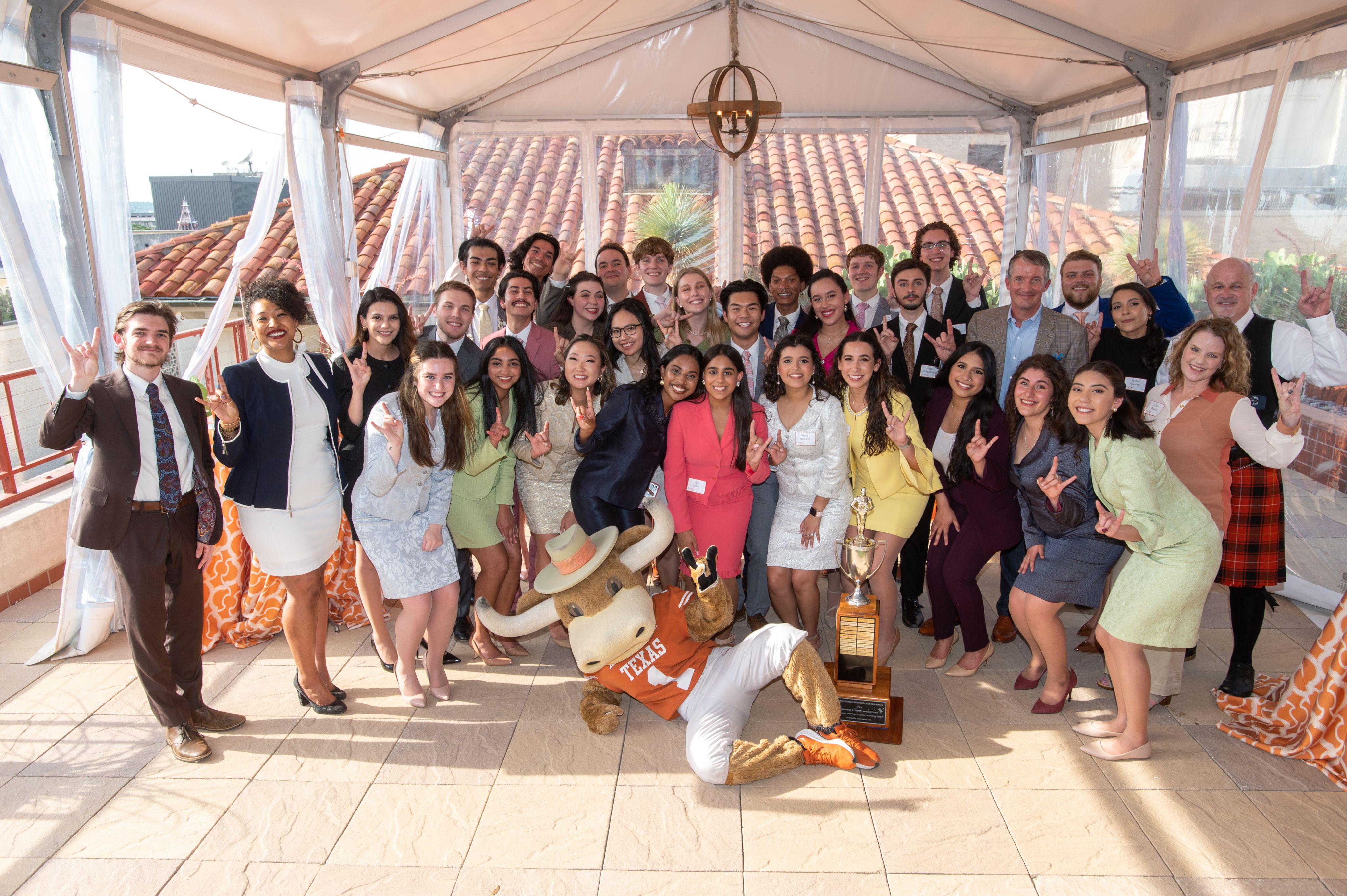
Alexis Alvarado, a communication and leadership senior, finished as a semifinalist in “after dinner speaking,” an event in the public address category that infuses comedy with a serious issue. She used her speech to discuss how grouping Latin American identities together erases the vast array of individual cultures.
“We don’t want our activism to stop by simply talking about a problem,” Alvarado said. “We want to propose to the audience what they can take away from the speech and what they can do in their everyday lives to actually help solve this problem that we are facing in our society.”
Alvarado said her speech allowed her to flex her comedic muscles, a skill she did not know she had but cultivated through practice, building her confidence in the process.
No matter how easy speech team members make it look, they put hours upon hours of meticulous practice into every 10-minute performance. Alvarado said the team first conceptualizes speeches the summer before the national tournaments the following April. Members then spend the next year writing, rewriting and editing, then receiving feedback from their coaches and peers.
“You have to work on memorizing your speech to make sure you get it down, you have to practice exactly what you look like in the mirror, how you move your hands, how you move your facial expressions and even how you walk from point to point,” Alvarado said.
“We want to propose to the audience what they can take away from the speech and what they can do in their everyday lives to actually help solve this problem that we are facing in our society.”
— Alexis Alvarado
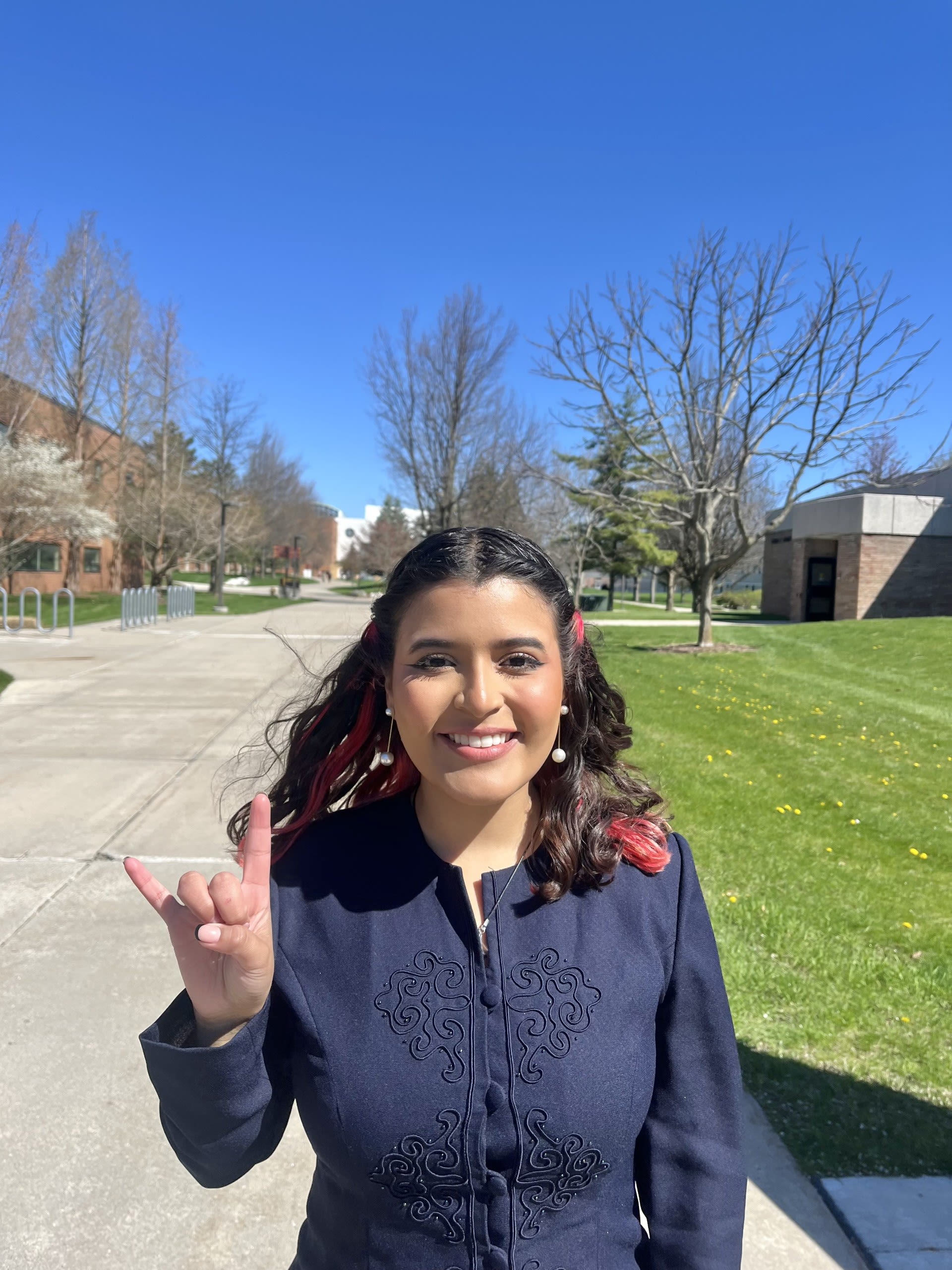
Radio-television-film major Kaylee Frazier always keeps with her a small black binder filled with her notes and drafts of scripts. She said she could be sitting in the middle of class when an idea strikes, and she gets her binder out, opens her laptop and jots the idea down before it leaves her head.
The same goes for the rest of the team. Frazier said it’s impossible to walk into the speech team room and find the lights off — there is always someone in there practicing, whether it’s 9 a.m. or 2 a.m., often with walls as their audience.
“It looks so strange when someone is holding their binder up to a wall and literally talking to it,” Frazier said. “Sometimes you’ll walk into the room and everyone is talking to various walls at the same time.”
Frazier won a national championship last year for dramatic interpretation, the type of speech most akin to acting.
“I write all of my material, so every aspect of it is so deeply personal,” she said. “This is the only art form that you have complete control over. I know how it's going to look when it's performed and even what will be worn on stage.”
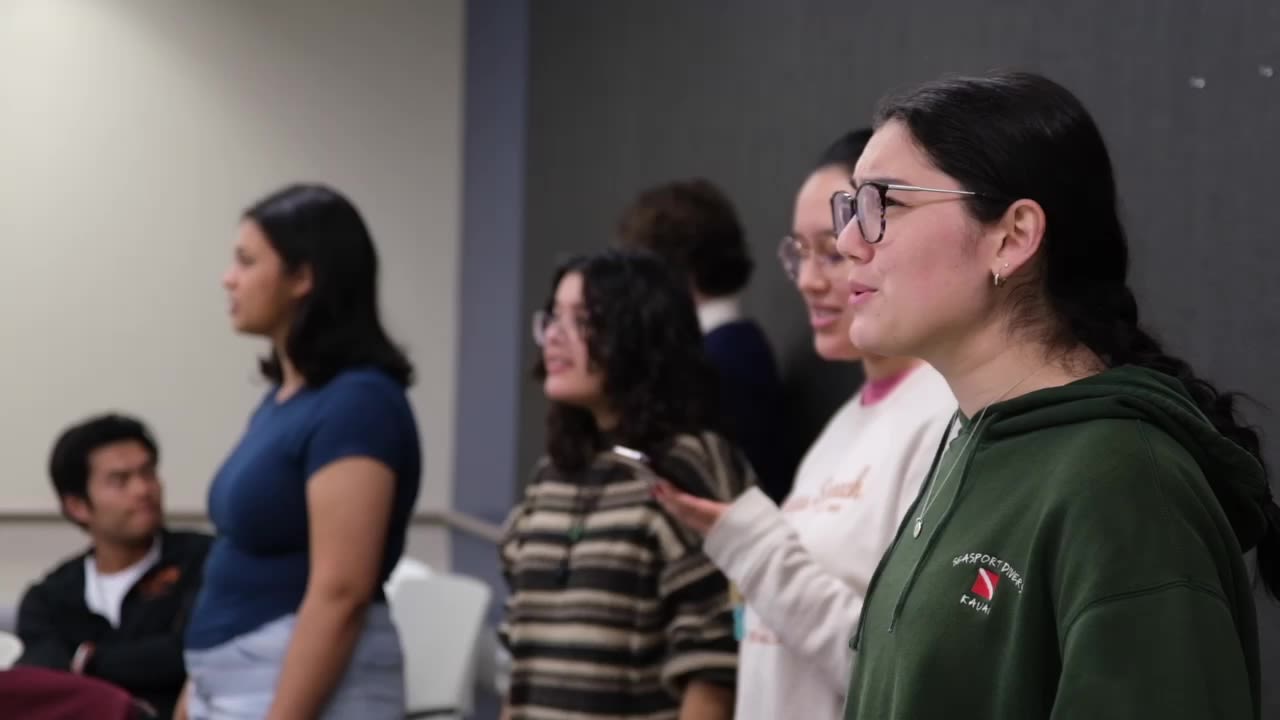
A finance major, Pham knows he’s not the typical student expected to join a speech team. He continues participating after all these years for the sake of the art itself and the love he has for performing.
“There is a level of creativity that tickles my brain when I do a speech,” Pham said. “On the other side of campus I find myself using my analytical side, and here, it is more of a way that I can challenge myself creatively and look at stories and people from a different lens.”
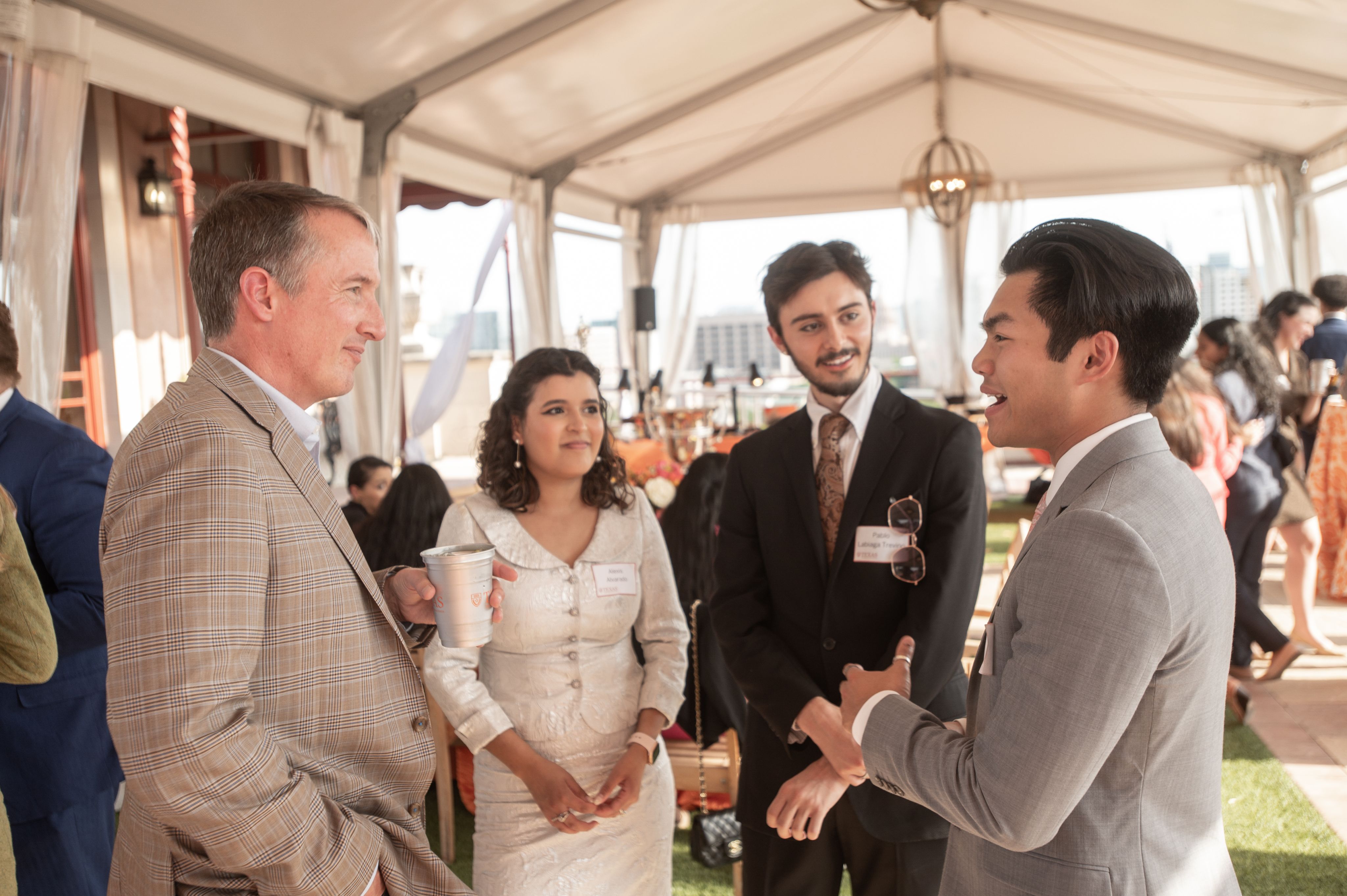
Pham speaking with President Jay Hartzell
Pham speaking with President Jay Hartzell
On tournament days, even if the speaker performs by themselves on stage, in reality, they are never alone. The Texas Speech team has cultivated a tight-knit community of not only members and coaches but a network of alumni who continue to support them well after they graduate. Alvarado said many alumni come back as volunteer coaches, and others will send supportive messages from all over the world on the Texas Speech Facebook page.
She said this support makes speech a more communal endeavor than an individual one. The team is rarely competitive with each other; they only want to uplift and support one another, Alvarado said. For her, the support makes stepping on stage an especially precious moment.
“We're living up to the legacy of the Texas Speech team from many years,” Alvarado said. “Whenever I go up for a performance, I remind myself that I have all of those people from the past supporting me in the present. I know the spirit of the team is always cheering me on because we’re bonded by the same goal and how speech has changed our lives for the better.”
Texas Speech director Randy Cox will retire his post this spring. Read about his 20-year legacy and plans for the future of the program.
